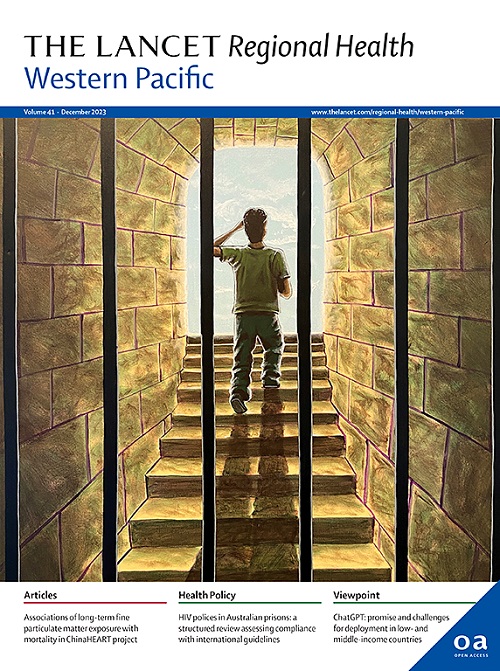Education of First Nations Australians about cancer—what evidence is there around its effectiveness? A narrative review
IF 8.1
1区 医学
Q1 HEALTH CARE SCIENCES & SERVICES
引用次数: 0
Abstract
Poorer cancer prevention and control outcomes for First Nations Australians have resulted in a need for improved health literacy, that is their capacity as individuals to access, understand, and use information in ways that promote and maintain good health. This narrative review explores the evidence on how education programs work to improve First Nations Australians' understanding of cancer, and how this leads to more effective use of prevention, screening and treatment services. Limited to the Australian context, a bibliographic search using terms structured around four main concepts: Aboriginal, Cancer, Australia, and Intervention (health literacy, health promotion) was undertaken in May 2024 for publications from January 2000. Studies that evaluated interventions or initiatives aimed to educate (that is, to increase awareness, knowledge and influence behaviours) across the cancer journey (excluding palliative care) were included. Fourteen evaluated initiatives drawn from peer-reviewed papers, published reports and peak body case studies were included in the review. All included papers were assessed with three major areas considered important for determining the effectiveness of cancer education for First Nations Australians: 1) acceptability: delivery in a format that is acceptable to community and health services, 2) impact: having a positive impact on people's access to and understanding of the cancer pathway and/or increases intended or actual participation, and 3) viability: successfully navigating the challenges of viably implementing, sustaining and scaling up an initiative. This review highlights several factors that contribute to the effectiveness of cancer education initiatives targeting First Nations Australians: culturally tailored initiatives, co-design and consultation during development, capacity building to create supportive, trusting environments for accessible cancer education; local ownership and empowerment, integration with existing healthcare systems, flexibility and multi-pronged approaches. Challenges and areas for further efforts in developing cancer health literacy are also described. Relatively few initiatives are evaluated: most of these have focussed on screening and treatment.
澳大利亚原住民关于癌症的教育——有什么证据证明它的有效性?叙述性回顾
土著澳大利亚人的癌症预防和控制成果较差,因此需要提高健康素养,即他们作为个人以促进和保持良好健康的方式获取、理解和使用信息的能力。这篇叙述性综述探讨了教育项目如何提高澳大利亚原住民对癌症的了解,以及这如何导致更有效地利用预防、筛查和治疗服务的证据。在澳大利亚范围内,针对2000年1月以来的出版物,于2024年5月对四个主要概念进行了书目搜索:土著人、癌症、澳大利亚和干预(健康素养、健康促进)。其中包括评估旨在教育(即提高认识、知识和影响行为)整个癌症治疗过程(不包括姑息治疗)的干预措施或举措的研究。从同行评议的论文、已发表的报告和高峰机构案例研究中提取的14项评估计划被纳入审查。对所有纳入的论文都进行了评估,认为三个主要领域对确定土著澳大利亚人癌症教育的有效性很重要:1)可接受性:以社区和卫生服务可接受的形式提供;2)影响:对人们获得和了解癌症途径和/或增加预期或实际参与产生积极影响;3)可行性:成功地应对可行地实施、维持和扩大计划的挑战。本综述强调了促进针对澳大利亚原住民的癌症教育计划有效性的几个因素:文化量身定制的计划,开发过程中的共同设计和咨询,为无障碍癌症教育创造支持性和信任环境的能力建设;地方所有权和赋权,与现有医疗保健系统的整合,灵活性和多管齐下的方法。还描述了在发展癌症健康知识方面需要进一步努力的挑战和领域。评估的举措相对较少:其中大多数侧重于筛查和治疗。
本文章由计算机程序翻译,如有差异,请以英文原文为准。
求助全文
约1分钟内获得全文
求助全文
来源期刊

The Lancet Regional Health: Western Pacific
Medicine-Pediatrics, Perinatology and Child Health
CiteScore
8.80
自引率
2.80%
发文量
305
审稿时长
11 weeks
期刊介绍:
The Lancet Regional Health – Western Pacific, a gold open access journal, is an integral part of The Lancet's global initiative advocating for healthcare quality and access worldwide. It aims to advance clinical practice and health policy in the Western Pacific region, contributing to enhanced health outcomes. The journal publishes high-quality original research shedding light on clinical practice and health policy in the region. It also includes reviews, commentaries, and opinion pieces covering diverse regional health topics, such as infectious diseases, non-communicable diseases, child and adolescent health, maternal and reproductive health, aging health, mental health, the health workforce and systems, and health policy.
 求助内容:
求助内容: 应助结果提醒方式:
应助结果提醒方式:


